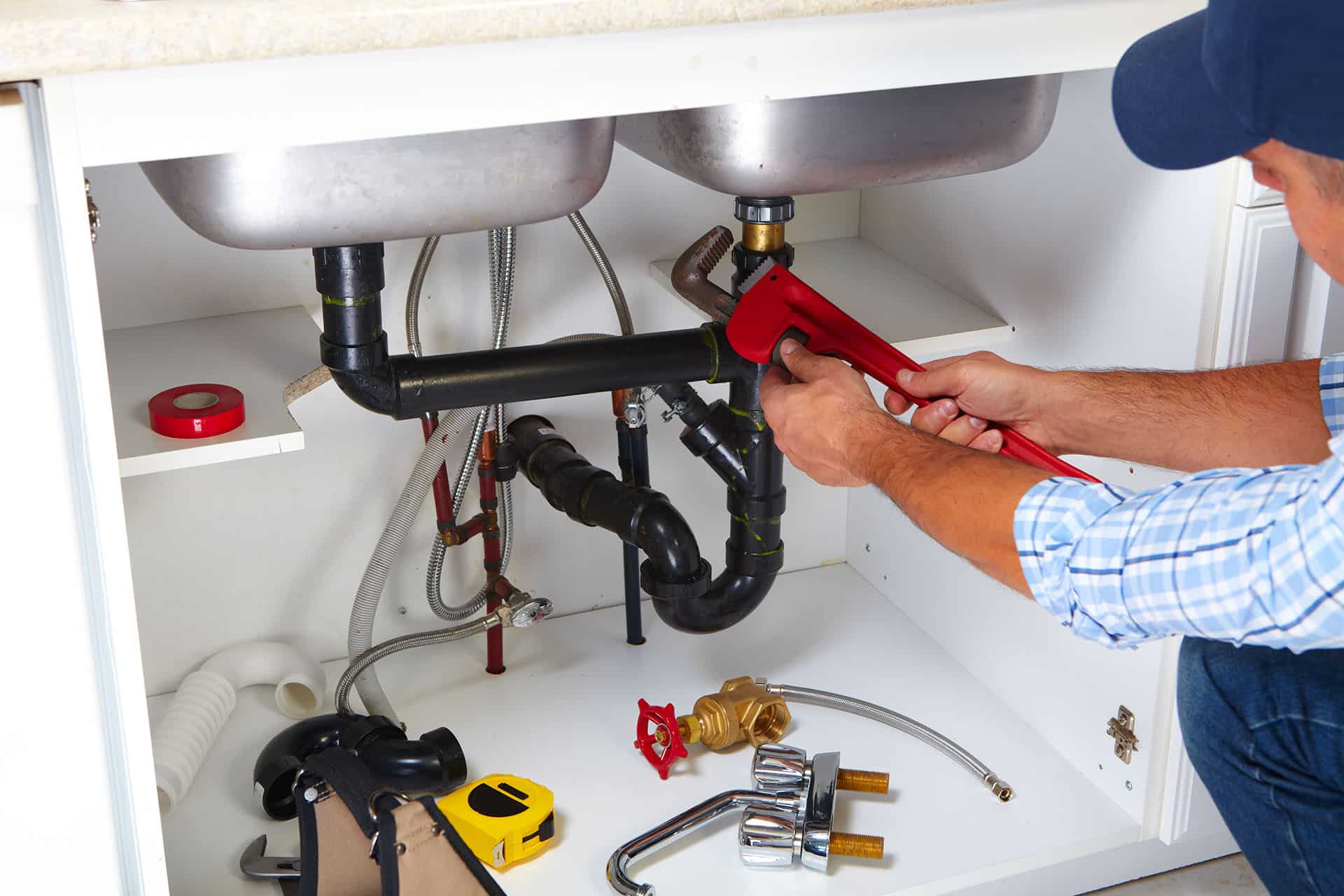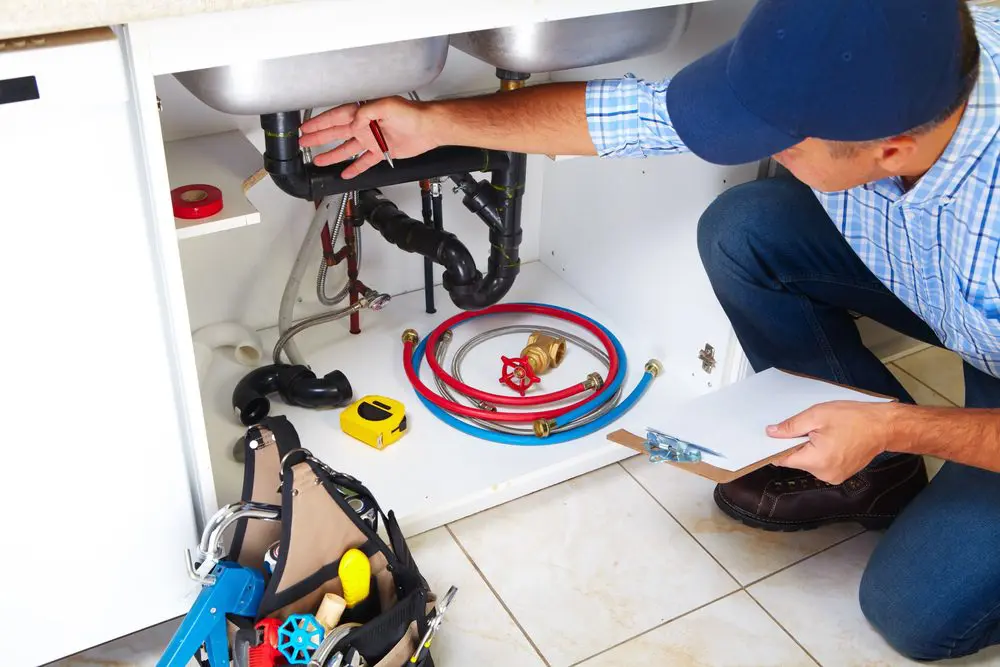Six Factors Behind Your Destruction In Your Plumbing Systems
Six Factors Behind Your Destruction In Your Plumbing Systems
Blog Article
We have uncovered the article on Can Hard Water Ruin Your Appliances? listed below on the web and believe it made good sense to talk about it with you in this article.

The trick to long-term home appliances, unsurprisingly, appertains maintenance. There's no hard and fast guideline that can guarantee your plumbing appliances a lengthy wear, however you can protect against unnecessary damage as well as repair services by staying clear of bad plumbing habits.
You ought to stop doing these 6 things else you'll keep calling your plumber over for minor faults.
Flushing whatever
Yes, your bathroom drain causes the drains, however that doesn't imply you ought to dispose just anything down the drain. Many 'flushable' products are in fact excellent blockage beginners, for example dental floss. Asides maintaining evident non-flushable materials like wires and also plastics out of your bathroom, you should additionally prevent flushing cotton buds, menstrual products, wipes, daipers and condoms down the bathroom drain.
Pouring grease in the sink
We know appropriately throwing away grease after a hearty meal is a pain. However simply putting it down the tubes can do lasting harm to your pipelines. "The fat and grease can obstruct your drainpipe badly sufficient to require you to call a plumber," describes Dawson. "Plumbing works best when it's well cared for-- not abused with grease."
Utilizing way too much drain cleaner
Utilizing a drainpipe cleaner greater than one or two times a month is an indicator that something significant is going on within your pipelines. Currently, instead of facing the primary issue, you opt for a quick fix; a fizzy drainpipe cleaner. Rightfully, a drain cleaner will take care of the clog, yet at what price?
The chemicals in a drainpipe cleanser can quicken the corrosion of your pipes. Add that to whatever underlying issue is causing the obstruction as well as you may need to a severe issue on your hands.
If you experience too many obstructions, call your emergency plumber rather than using a drainpipe cleaner.
Not rinsing dishes before filling them right into the dish washer
it's called a dish washer, however throwing in dishes, pots, and also frying pans covered in large food bits can really create some significant damages to the home appliance, resulting in long-term troubles down the line. "Homeowners might need to get their dishwasher fixed more frequently if they don't wash their dishes prior to packing, or at least get rid of larger food items," discusses Audrey Monell, proprietor of Forrest Anderson Plumbing as well as AC in Glendale, Arizona. "Food that gets stuck on recipes triggers the dish washer to work harder, which can wear down parts much faster, resulting in issues."
DIYing every little thing
With plumbing, a stitch in time really does conserve 9. You can prevent a fullblown plumbing emergency by calling your plumber at the correct time.
You might have found out a few plumbing hacks from your dad, however you should recognize where to draw a line as well as call a professional. As an example, you might be able to repair a blockage on your own, yet you should not attempt to transform a pipe. You could mismatch pipes or overtighten a bolt, causing more injury and damage than you thought. Calling a plumber is a risk-free as well as budget-friendly choice.
Not altering your dishwashing machine pipes
One simple method to make certain that you utilize your dish washer for many years is to replace the hose pipe at least when in five years. This also makes an application for washing equipment tubes.
In time, food particles, soap and also grease can create obstructions within your pipes. Replacing them on time will certainly avoid any kind of presure develop that can damage the inner operations of your dishwashing machine or washing machine.
An enhanced steel entwined hose pipe does an excellent job of extending your equipment's usage time.
No winter season preventative measures
Extreme weather conditions are bad for your pipelines, specifically if they're made from steel. You ought to protect your exposed pipes, and also your water container, even if you have a hot water heater. You ought to also turn off your yard hose pipe valve and also any other outside water networks. These networks are outlets for cool; you pipes can begin to freeze from outdoors if you don't.
WAYS TO AVOID DAMAGE TO YOUR PLUMBING SYSTEM
DON’T DUMP GREASE DOWN THE DRAIN
Grease is your plumbing’s worst enemy. After cooking bacon, it’s wise to find a better way to dispose of the grease. Grease is solid at room temperature and should never find its way to your pipes. Once the grease gets to the P-trap under your sink, it solidifies and becomes a sticky trap for debris and gunk. The blockage will eventually clog or slow your drain.
If the grease finds its way to the sewer, it will meet with all sorts of wastes and cause a blockage. If you pour grease down the drain accidentally, remove it with natural cleaners like baking soda and vinegar.
FLUSH YOUR GARBAGE DISPOSAL
A garbage can in the kitchen is unsightly, and that’s why people invest in garbage disposals. Your garbage disposal helps to reduce odors in the kitchen sink; it mutilates the food particles and enables them to drain easily. The disadvantage of having a garbage disposal is that it can harbor waste and odors.
Avoid putting items that cannot be broken down easily into the garbage disposal. Running cold water often helps to flush food particles from the trap to the waste pipes without damaging the moving parts.
If the moving parts start grinding, turn off the faucet and add one tablespoon of baking soda and one cup of vinegar. Turn on the garbage disposal for several minutes until the grinding stops. Then, flush it with hot water.
DON’T FLUSH UNWANTED MATERIALS IN THE TOILET
Be careful when flushing things down the toilet. Even food scraps don’t break down as easily, meaning that they can clog your sewer line. The last thing you want is to have a clogged toilet in your home.
If you drop something into the toilet, don’t assume that a flush will unclog it. Instead, try to remove it with a plunger. If the plunger does not work, use the plumber’s snake to remove it. Fill the toilet with water, and use the plumber’s snake to dislodge it. You might have to call a plumber if these methods don’t work.
FIX YOUR FAUCETS
Almost every homeowner has experienced a problem with dripping faucets. Besides being annoying, they can drip away gallons of water over time and cost you money. The internal washer becomes worn out and dislodged, especially if you live in a hard-water region.
Turn off the water supply and disassemble the faucet with a wrench. Tape the edges of your wrench with tape to avoid scratching your faucet. Remove the mineral deposits with vinegar and a scouring pad. If the ring and washers have become rusty and disfigured, be sure to replace them.
DEAL WITH LOW WATER PRESSURE
If water trickles from your faucets instead of gushing, you might have a deeper problem to deal with. Find out whether the problem has affected one appliance or the entire house. If your neighbors are not having the same problem, then you need to check the main water supply valve to ensure that it’s fully open.
In some cases, low water pressure means that most of your appliances and pipes are clogged. You need to disassemble the affected appliances and use vinegar to dissolve the mineral buildup.
WINTERIZE YOUR PIPES
When water freezes in the pipes, it expands significantly as it turns to ice. This expansion generates enormous pressure that causes damage to the pipes. Experts recommend winterizing your plumbing if your house will be vacant for a while. You don’t want to deal with all sorts of problems when you return home from holiday.
During the winter, it’s wise to prepare your plumbing for the freezing temperatures by insulating the pipes in the unheated areas. These include the crawlspaces, attic, and garage. Let the faucet drip as running a trickle through the pipes will prevent them from freezing.
Pipes freeze and burst at 32 degrees Fahrenheit, the freezing point for water. According to Energy Star, you should set your thermostat at 70 degrees Fahrenheit during the winter for optimum energy efficiency.
https://hufthomeservices.com/8-ways-to-avoid-damage-to-your-plumbing-system/

As a devoted person who reads about Leak Detection and Repair Without Destroying Your Home, I thought sharing that excerpt was a good idea. Don't hesitate to take the opportunity to distribute this post if you liked it. Thanks for going through it.
Explore Report this page